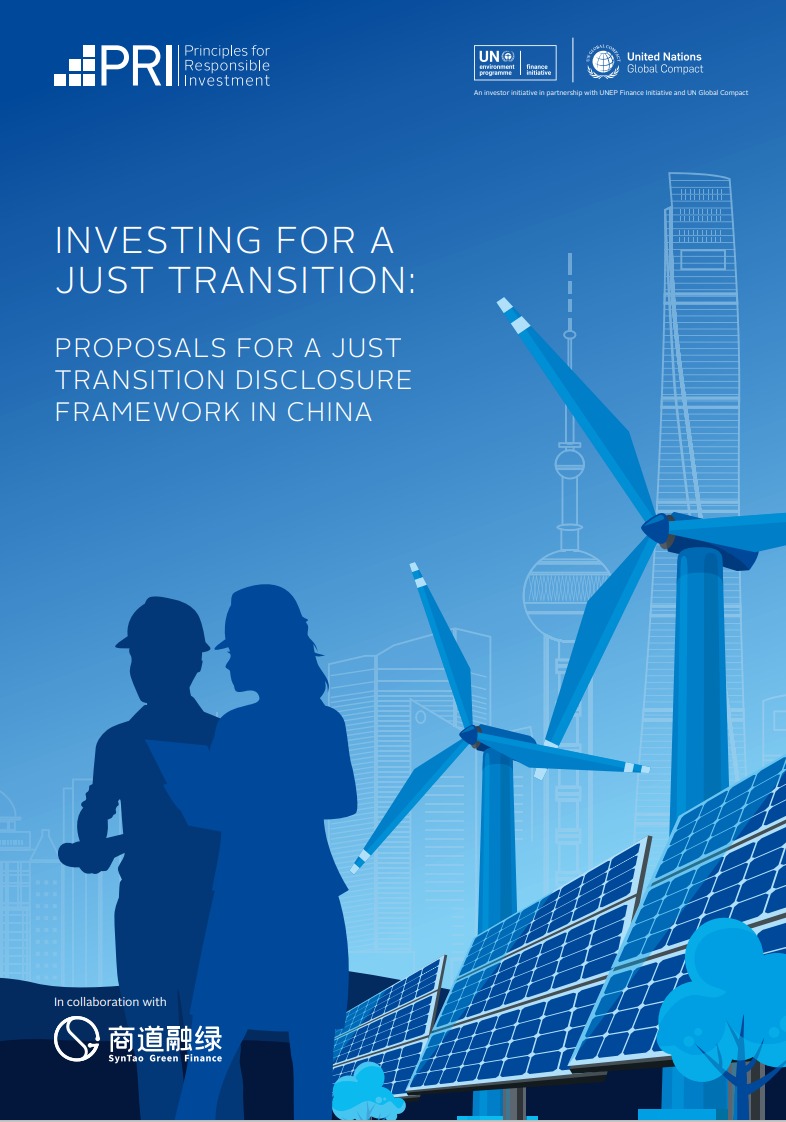
To integrate just transition concerns into decision-making, investors need relevant information from companies. This report proposes a framework for companies in China to disclose their strategies, actions and policy advocacy related to a socially just low-carbon transition.
As China moves towards a low-carbon society and increasingly pursues a strategy of high-quality development, issues around a just transition have become unavoidable for Chinese companies and investors. Recent policies in China, such as the 14th Five-Year Plan, the Working Guidance for Carbon Dioxide Peaking and Carbon Neutrality and the Action Plan for Carbon Dioxide Peaking Before 2030, emphasise the importance of a steady and orderly transition towards carbon neutrality that addresses social fairness and justice issues.
On the one hand, the low-carbon transition will create green jobs, provide new green energy and commodities, develop new business partnerships and unlock new development opportunities. On the other hand, unless effective measures are adopted, workers in carbon-intensive sectors, and communities and regions that rely on these sectors, face the loss of jobs, a potential lack of access to affordable green energy, hardship among small and medium-sized enterprises, fewer development opportunities and increased inequality.
Countries around the world, including China, and investors have begun taking action to tackle the social impacts of the low-carbon transition. China has been working towards a just transition by seeking to address issues of unemployment and energy security, with more effort thus far from government than among investors. A systematic approach to a just transition, bringing together government, investors and companies, is not yet in place.
Investors can use a just transition lens to better understand and influence systemic and systematic risks, uncover investment opportunities, identify material drivers of long-term value, fulfil their fiduciary duty and align with economic, social and ecological development goals. Investors can take action on just transition issues across five areas: investment strategy, corporate engagement, capital allocation, policy advocacy and partnerships, and learning and review.
To effectively integrate just transition issues into their decision-making, investors will need companies to provide clear, consistent and comprehensive information about the social issues they face during the low-carbon transition. However, few widely applied climate-related disclosure frameworks currently address these issues. To fill this gap, this report sets out a proposed disclosure framework for companies to disclose their recognition of and commitments to addressing a just transition, including around their strategies, actions and policy advocacy.
